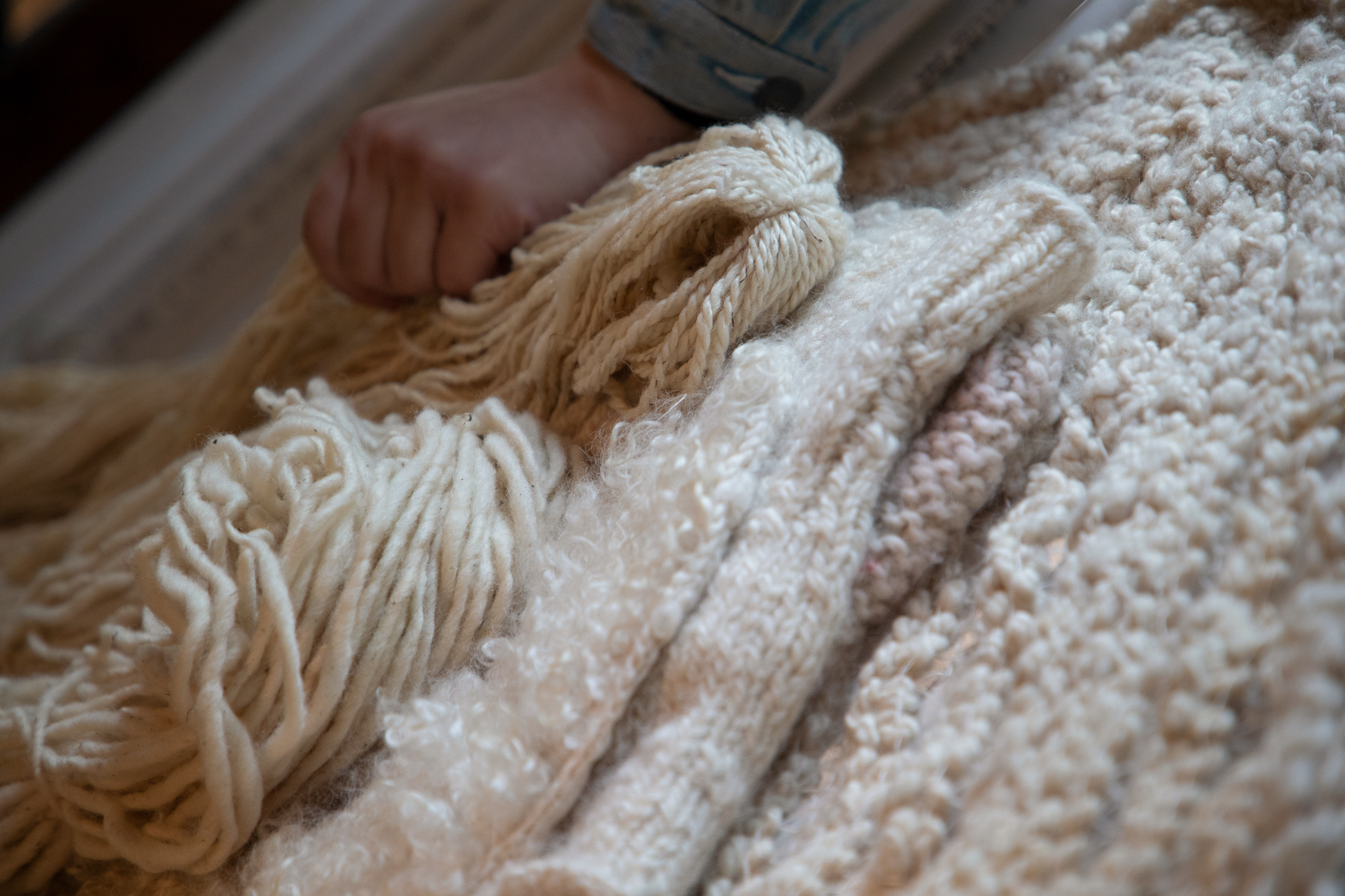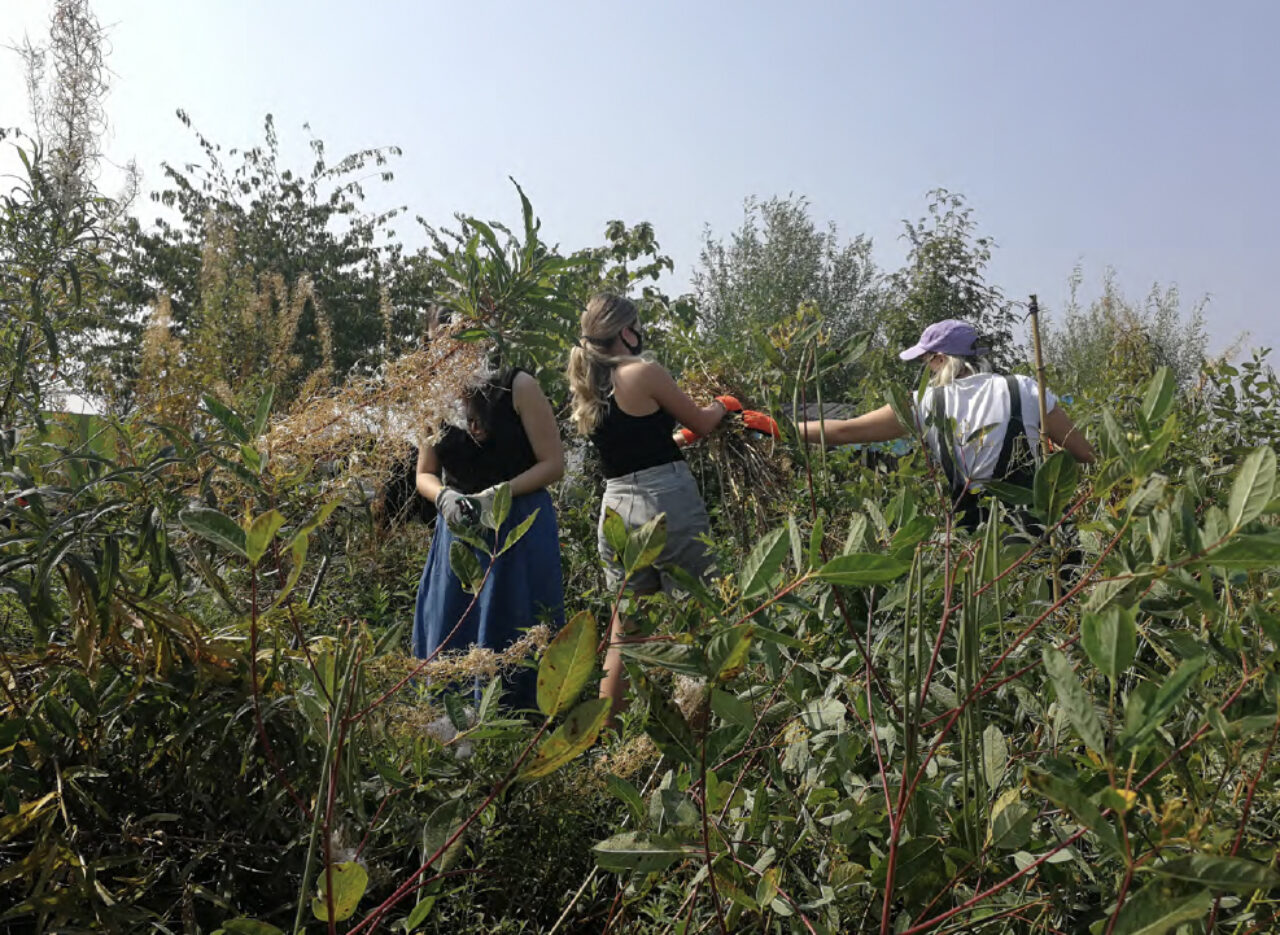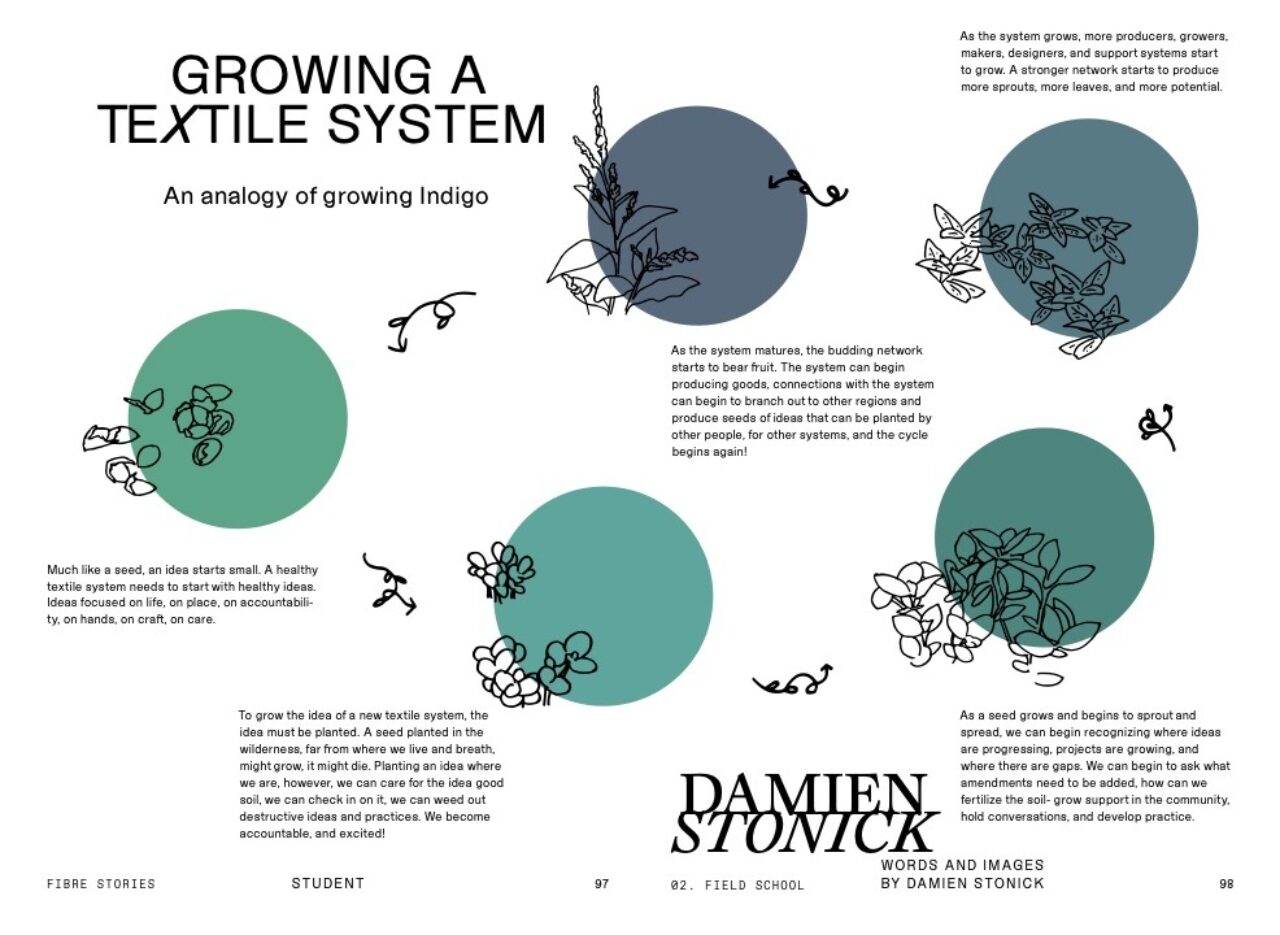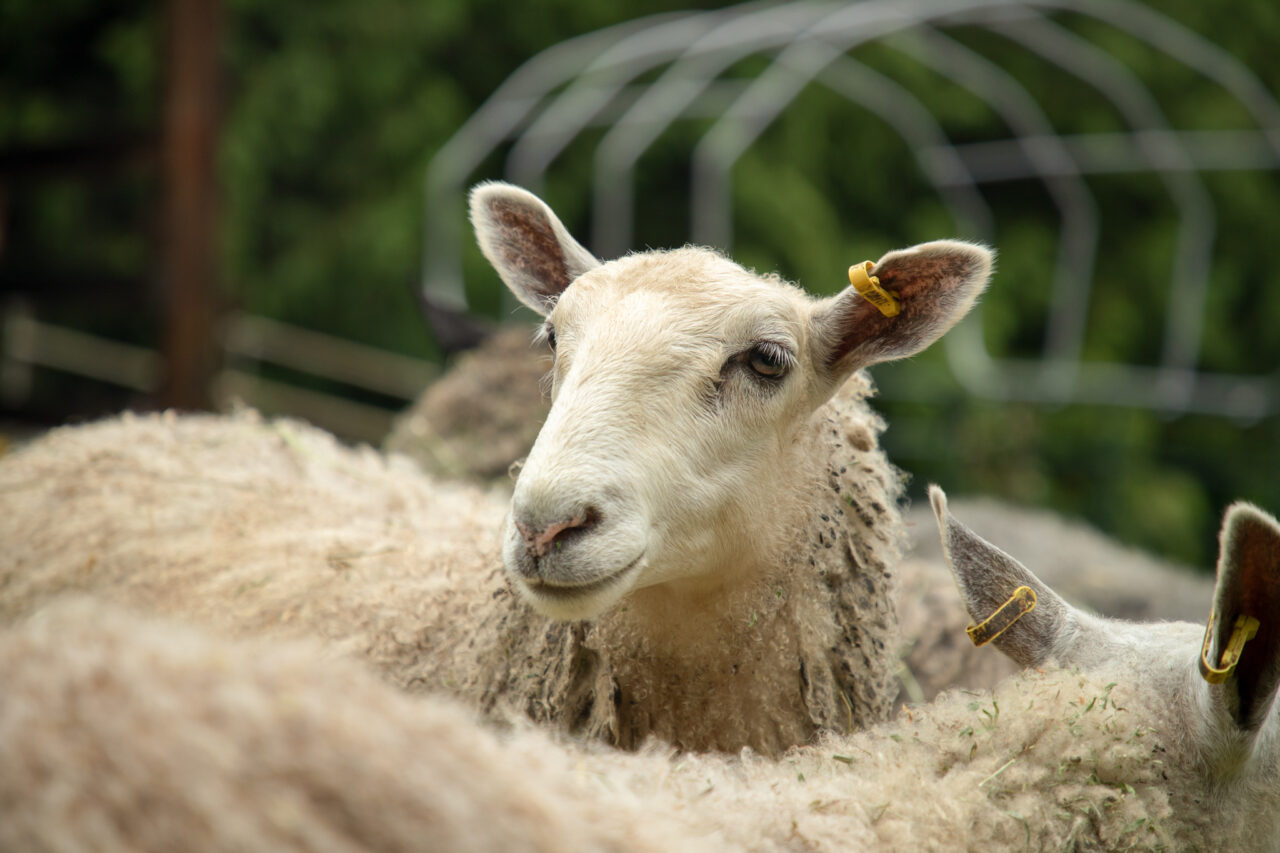‘Fibre Stories’ Connects Textiles to People and Place

From the 'Fibre Stories' book. (Photo by Benny Zenga; courtesy Fibreshed Field School)
Posted on | Updated
A suite of free resources, collectively titled Fibre Stories, is now available to the public to support a deeper understanding of sustainability, responsibility and justice in the textile industry.
A new project titled Fibre Stories makes free resources available for exploring sustainability and ethical practice within the textile industry.
Led by the Shumka Centre for Creative Entrepreneurship and Material Matters at Emily Carr University, Fibre Stories includes a book, a podcast and a series of how-to zines that share the knowledge and work behind the Fibreshed Field School — a community-focused program created by Emily Smith aimed at connecting people more closely with local fibre systems and supply chains.
Ash Logan, Fibre Stories editor, says the book, zines and podcast offer an introduction not only to Fibreshed as a concept and practice, but to ways of working and living that harness creativity and community to spark meaningful change.
“Something that I learned throughout this journey with Fibre Stories is that there are so many pathways to be involved in Fibreshed and it really feels limitless,” Ash says.
“I think what we really need in the world and in our communities right now is limitless creativity. Problems often feel so big and so far out of our reach, but when we start to imagine a better future in creative and collaborative ways, real change starts to happen. Because none of this work would be possible without working together.”

From the 'Fibre Stories' book. (Photo by Sharon Kallis; courtesy Fibreshed Field School)
Fibreshed Field School derived its inspiration from, and worked collaboratively with, Rebecca Burgess, who coined the term fibreshed in the early 2010s. Similar to a watershed, the concept of a fibreshed focuses on a geographical landscape — in this case a regional “resource base where you can procure your fibre, dye and [obtain the] skill level to clothe yourself and your community,” Rebecca said in 2020. Rebecca is also founder of a non-profit organization under the same name, which works to “develop equity-focused regional and land-regenerating natural fiber and dye systems.”
The book shares the work of Fibreshed Field School participants and researchers; the podcast looks at BC’s local and regional fibresheds and examines the tensions that arise when fibre and cloth are seen through the lens of sustainability and decolonization; and the zines share the knowledge generated throughout the field school’s duration.
“Fibreshed Field School brought together students, mentors, faculty, and community in a way that revealed the importance of establishing a local textile industry and the responsibility of artists and designers to work reciprocally with the land, culture, and community,” Hélène Day Fraser, associate professor at ECU and co-director of Material Matters, says.

From the 'Fibre Stories' book. (Infographic by Damien Stonick; courtesy Fibreshed Field School)
Students learned about fibre production and processing, manufacturing and design, and entrepreneurship, Hélène says, and, notably, were introduced to the concept of “slow making.”
“While learning where fibres are grown, harvested, and processed, the students’ perception of time was challenged,” she continues.
“They learned what it means to research and work responsibly and reciprocally with local fibre systems. These insights sparked a radical change in how students approach their own practice and began to inform their future design and art practice. Fibre Stories publications aim to capture these insights and serve as a repository for future students as well as for the farmers, ranchers, textile producers and makers working on our local fibreshed.”
Each item is available online via the Fibre Stories website. Fibre Stories the book can be viewed online or can be downloaded as a PDF. Episode one of the podcast, ‘Rethinking Fibre Futures with Rebecca Burgess and Emily Smith’ is now available for streaming, with the next seven episodes to be released in the coming weeks. The zines, which include ‘How to Coil with Fibres,’ ‘How to Dye with Indigo’ and ‘How to Weave with Cedar,’ can be read via the Fibre Stories website, and are formatted for home printing for those who desire a physical copy.

From the 'Fibre Stories' book. (Photo by Benny Zenga; courtesy Fibreshed Field School)
Fibre Stories materials were gathered and produced by ECU research assistants Chiara Schmitt, Christa Clay, Melanie Camman, Elham Atighi Lorestani and Ash Logan, who were mentored by Hélène, and advised by Emily Smith, Keith Doyle, Kate Armstrong and Cemre Demiralp from January through October, 2021. The project received funding from the Accountability Council for Co-operative Education and Work Integrated Learning and the Ministry of Advanced Education, Skills and Training as well as the Vancouver Foundation.
Visit the Shumka Centre and Material Matters online to find out more about their ongoing work. Learn more about research at Emily Carr at ecuad.ca.